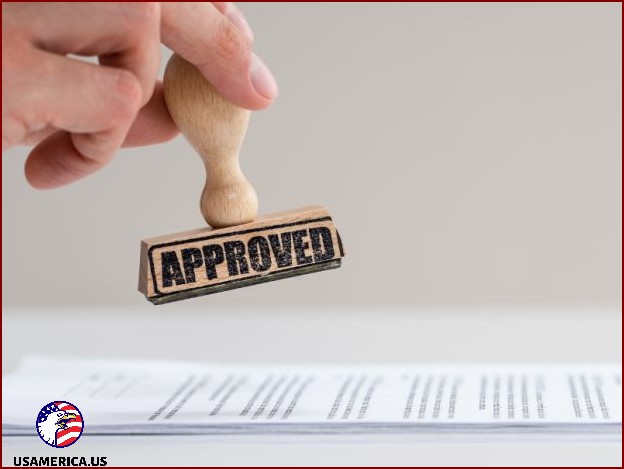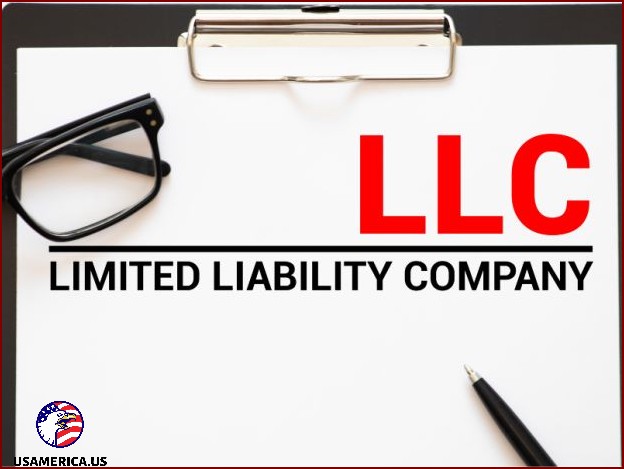My List of 10 Essential Steps After Creating an LLC
Creating an LLC is a big step in starting your own business. Once you’ve crossed that milestone, it’s time to take some important follow-up actions. Here are ten essential steps that will help you navigate your journey as a newly-formed LLC:
Contents
- 1 1. Get That EIN:
- 2 2. Open a Business Bank Account:
- 3 3. Update Licenses and Permits:
- 4 4. Establish an Accounting System:
- 5 5. Secure Appropriate Insurance:
- 6 6. Create an Operating Agreement:
- 7 7. Sort Out Tax Obligations:
- 8 8. Protect Your Intellectual Property:
- 9 9. Set Up a Professional Website:
- 10 10. Establish a Marketing Strategy:
- 11 What You Should Do After Creating an LLC
- 11.1 1. Get Any Required Business Licenses and Permits
- 11.2 Step 2: Don’t Forget Your Seller’s Permit!
- 11.3 Step 3: Get Your Employer Identification Number (EIN)
- 11.4 Step 4: Apply for S Corporation S Treatment (If It Applies to You)
- 11.5 5. Set Up a Business Bank Account
- 11.6 Step 6: Get a Business Credit Card
- 11.7 Step 7: Protect Your Business with Insurance
- 11.8 8. If You’ll Be Operating in Other States (If Relevant)
- 11.9 Step 9: Get a Doing Business As (DBA)
- 11.10 Step 10: Make a Plan to Keep Your LLC in Check
- 12 What You Should Do After Creating an LLC
- 12.1 Stay Updated on Taxes and Benefits
- 12.2 Set Up Accounting and Bookkeeping Systems
- 12.3 Create a Solid Business Plan
- 12.4 Establish Policies and Procedures for Your Business
- 12.5 Get Organized with a Record-Keeping System
- 12.6 Keep Your Legal documents Up to Date
- 12.7 Protect Your Ideas
- 12.8 Get the Word Out
- 12.9 Stand Out Online
- 12.10 Networking and Forming Strategic Alliances
- 12.11 Prioritizing Customer Feedback and Service
- 12.12 Staying Informed about Trends and Changes in my Industry
- 12.13 Developing a Plan for Managing Unexpected Crises
- 12.14 Discover New Ways to Grow and Expand
- 12.15 Nurture a Positive Company Culture
- 12.16 Prepare for the Future of Your Business
- 12.17 Invest in Ongoing Learning and Growth
- 12.18 Embrace Sustainability and Social Responsibility
- 12.19 Measure and Analyze Business Performance
- 12.20 Stay Proactive and Adaptable
- 12.21 Seek Legal and Financial Advice Regularly
- 12.22 Take Time to Celebrate
1. Get That EIN:
Now that you have an LLC, it’s crucial to get an Employer Identification Number (EIN). This number will identify your business for tax purposes. You can easily apply for an EIN online through the IRS website.
2. Open a Business Bank Account:
Separating your personal and business finances is crucial for the success of your LLC. Opening a business bank account will make managing your finances easier and more organized. Visit your local bank to open an account specifically designed for businesses.
3. Update Licenses and Permits:
Ensure that your LLC complies with all necessary licenses and permits required in your industry and location. Research and update any licenses or permits that may be needed to operate your business smoothly.
4. Establish an Accounting System:
Keeping track of your finances from the start is vital. Invest in an accounting system or software that suits your LLC’s needs. This will help you accurately record transactions, prepare financial statements, and manage tax filings.
5. Secure Appropriate Insurance:
Protecting your LLC from risks and liabilities is crucial. Research and obtain the necessary insurance coverage for your particular industry. General liability insurance or professional liability insurance are good places to start, depending on your business type.
6. Create an Operating Agreement:
An operating agreement is like a roadmap for your LLC. It outlines the structure and internal workings of your business, including member roles and responsibilities, profit distribution, and dispute resolutions. Consult an attorney to help you draft a comprehensive operating agreement.
7. Sort Out Tax Obligations:
It’s important to understand your LLC’s tax obligations. Consult with a tax professional to ensure compliance with state and federal tax regulations. They can guide you on the appropriate tax forms to file and when to meet specific deadlines.
8. Protect Your Intellectual Property:
If your LLC has unique inventions, logos, or brand names, don’t forget to protect your intellectual property. Consult an intellectual property attorney to determine if trademarks, copyrights, or patents are necessary to safeguard your creations.
9. Set Up a Professional Website:
In today’s digital age, having a professional website is crucial for any business. Create an online presence that showcases your LLC’s products or services. Remember to include essential details like company information, contact information, and any necessary disclaimers.
10. Establish a Marketing Strategy:
To attract customers and promote your LLC, you’ll need a solid marketing plan. Research different marketing strategies that align with your target audience and budget. This could include social media marketing, online advertisements, or local networking events.
Remember, forming an LLC is just the beginning of your entrepreneurial journey. By taking these ten essential steps, you’ll set a strong foundation for your LLC’s success. Keep learning, adapting, and following your dreams – you’ve got this!

When you decide to form an LLC, it’s important to remember that this is just the beginning of your business journey. Setting up a Limited Liability Company (LLC) or incorporating is a crucial legal step that lays the groundwork for your enterprise and protects your personal assets.
Now that you’ve formed an LLC, you may be wondering what comes next. What are the things you need to do? Forming an LLC was just the start, and there are still important steps to take before you can officially open your doors for business.
Creating an LLC is not enough to legally operate your business. There are some key details you need to consider and complete before you are fully prepared to conduct business.
So, before you dive into the world of business, there are a few important things you need to keep in mind. This includes meeting regulations, getting the necessary permits, and setting up your financial management systems. Let’s break it down:
What You Should Do After Creating an LLC
1. Get Any Required Business Licenses and Permits
A lot of new business owners tend to think that forming an LLC or corporation automatically means they have a business license. But unfortunately, that’s not the case. And trust me, you don’t want to find out the hard way by getting hit with fines for operating without a license.
Here’s another way to think about it: forming an LLC is like building the foundation of your business. It’s the first step to being legit. But a business license is what actually gives you the green light to operate.
Depending on the type of business you have and where you live, you may be required to get business licenses from your state, county, or town.
Did you know that getting a license for your business can actually save you money and keep things all above board? It’s true! Let me share some helpful tips on how to make sure your business is legit.
First things first, licenses are usually pretty affordable. So it’s a good idea to get one right from the start. Not only will it save you money, but it will also give you peace of mind knowing that everything is official.
Now, the question is, where do you get these licenses? Well, you have a couple of options. You can check with your local board of equalization offices to find out exactly what permits your business needs to legally operate. Or, you can even use a service that specializes in this sort of thing.
Let’s take a look at the different types of licenses you might need:
- Zoning permit: This is important because it ensures that your business is located in an area that allows for the type of business you’re running.
- Permit from the health department: If your business involves food, health, or other related services, you’ll probably need this permit to show that you meet the necessary health and safety requirements.
- Professional licenses: Certain professions, like doctors, lawyers, or contractors, require specific licenses to practice legally. Make sure you check if your profession falls into this category.
- General business operation license: This is a broad license that covers the overall operation of your business. It’s like a general stamp of approval.
- Home occupation permits: If you’re running your business from home, you may need a special permit to make sure it complies with local regulations.
So there you have it! Getting a license for your business is a smart move that saves you money and keeps you on the right side of the law. Check with your local authorities or find a service that can help you figure out exactly which licenses you need. Good luck with your business!

Step 2: Don’t Forget Your Seller’s Permit!
Hey there, fellow business owner! Did you know that different states have different rules for businesses like ours? Yeah, they sure do! One thing many states require is what we call a seller’s permit. It’s kind of like a license that allows us to sell stuff and do business.
But here’s the thing: it’s not just for big companies. Even if you’re a small business owner like me, or if you have a partnership or an LLC, you still need this permit if you sell things that are subject to sales tax.
Take California, for example. If we want to sell or lease property there and fall under that state’s sales tax umbrella, we gotta get this permit. It’s not an option, it’s a requirement! So before you dive into the world of commerce, make sure you have this permit in your business arsenal. Trust me, it’s important!
Step 3: Get Your Employer Identification Number (EIN)
An EIN, or what many people know as a federal tax ID number, is not just a random group of numbers. It serves as a signal for the IRS to find your business in a big crowd of companies and keep a close eye on its transactions.
Think of an EIN as the business version of a person’s social security number. If you are thinking about hiring employees, having an EIN is essential and cannot be overlooked.
But even if you are running your business by yourself, getting an EIN is a smart decision. It can come in handy when you would rather share your EIN, a more distant identifier, instead of your personal social security number, with people like clients and vendors.

Step 4: Apply for S Corporation S Treatment (If It Applies to You)
As an owner of an LLC, I go through something called pass-through tax treatment. This means that the profits and losses of my business are passed on and reported on my personal tax return.
When you own an LLC, you have to report all the profits (or losses) of your business on a Schedule C together with your personal tax return.
If I am actively involved in my business, I also have to pay a self-employment tax on the profits.
Sometimes, it might be in my best interest to choose S Corporation status. This allows me to divide my business’ profits into salary and distributions. I will have to pay the self-employment tax (or Medicare/social security tax) on the salary part, but not on the distributions.
If you want your LLC to become an S Corporation, you have to submit form 2553 to the IRS (it doesn’t cost anything) within 75 days of creating the LLC or 75 days from the beginning of the current tax year.
If you’re trying to decide between an LLC and an S Corporation, the chart below breaks down their main differences when it comes to taxes and requirements:
5. Set Up a Business Bank Account
Going from a business idea to an actual LLC is exciting. But what comes next? You need to open a business bank account in the name of your LLC.
This account isn’t just for depositing checks for your business. It’s like a lighthouse, showing the line between your personal and professional finances.

Step 6: Get a Business Credit Card
Hey there, it’s important to have a separate bank account for your business, but let’s not forget about the power of a business credit card.
Not only does this card allow you to organize all your business expenses in one place, but it also keeps a record of your financial journey throughout the year. And when tax season rolls around, you’ll be grateful for this helpful trail.
What’s more, having a credit card exclusively for your business strengthens your corporate veil, which acts as a protective shield between any potential business troubles and your personal assets.
Step 7: Protect Your Business with Insurance
While setting up an LLC or incorporating your business does protect your personal assets, it doesn’t safeguard the business itself from losses.
That’s why you should think about getting insurance to protect your business. One option is general liability insurance or a Business Owners Policy (BOP). These policies will cover a wide range of accidents, injuries, and claims of negligence that could happen in your business.
Additionally, if you sell a product, you’ll need product liability insurance. And if you provide a professional service like being a lawyer, accountant, notary, real estate agent, insurance agent, hair salon owner, or consultant, you’ll need a professional liability policy.
8. If You’ll Be Operating in Other States (If Relevant)
If your LLC will be doing business in a state other than where it was formed, you’ll need to register in the new state(s).
You know, sometimes you might need to make some important decisions when it comes to your company. Like, you might decide to open up a new office or store in another state. Or maybe a big chunk of your company’s money is coming from people in another state. That’s a big deal! You could also have some employees who work in another state. And if you’re always having face-to-face meetings in a particular state, that’s something to think about too.

Step 9: Get a Doing Business As (DBA)
Hey, did you know that if your business has any variation of its official name (like Company, Company.com, or Company, Inc.), you need to do something called filing a Doing Business As (DBA)? Yep, for each variation, you gotta get a DBA. So, here’s the deal: you should have your LLC take care of the DBAs, so they can operate under the LLC.
Step 10: Make a Plan to Keep Your LLC in Check
Listen up! Once you become a corporation or LLC, things get a little more serious. You’ve gotta level up your admin game compared to when you were just a sole proprietor.
Both LLCs and corporations have to file an annual report with the state and keep up with quarterly tax payments. It’s a bit more responsibility, but don’t worry, it’s doable.
Here’s a tip: mark these important dates on your calendar in advance or sign up for a service that can send you reminders before key state and federal deadlines. Easy peasy!

What You Should Do After Creating an LLC
Stay Updated on Taxes and Benefits
Once you’ve formed your LLC, it’s really important to keep up-to-date with the tax requirements and potential benefits that apply to your business. Each state has its own tax rules for LLCs, which may include franchise taxes or yearly report fees. It’s also crucial to understand the tax deductions and credits that are available to your business, as they can have a big impact on your financial planning. Make sure to regularly speak with a tax professional to ensure you’re following the rules and taking advantage of any tax-saving opportunities.
Set Up Accounting and Bookkeeping Systems
When it comes to managing your LLC’s finances effectively, it’s important to set up reliable accounting and bookkeeping systems. Make sure to choose accounting software that suits your business needs. You might also want to consider hiring a professional accountant or bookkeeper to handle your financial records. By keeping accurate financial records, you not only make tax preparation easier but also gain valuable insights into your business’s financial health.
Create a Solid Business Plan
A well-crafted business plan is crucial for guiding the growth of your LLC and attracting financing or investment. Your business plan should clearly outline your goals, strategies, market analysis, and financial projections. Remember to regularly review and update your business plan to reflect changes in the market and your business objectives.
Establish Policies and Procedures for Your Business
Let’s make sure we have clear rules and steps in place to keep our business running smoothly. We need policies for things like how we handle customers, returns and exchanges, how our employees should behave, and other important operational details. Having these procedures in place helps us stay consistent and can even make things run more smoothly.
Get Organized with a Record-Keeping System
We should keep a good system to keep track of important documents for our LLC. This means keeping things like our LLC formation papers, financial records, contracts, employee files, and any legal documents we need to comply with. Having a proper record-keeping system is crucial for staying legal and keeping things efficient.
Keep Your Legal documents Up to Date
Protect Your Ideas
When it comes to your business, it’s important to protect your ideas and creations. This means safeguarding your trademarks, patents, and copyrights. By securing your intellectual property rights, not only are you safeguarding your brand, but you also have legal recourse if someone tries to copy or steal your work.
Get the Word Out
It’s not enough to just have a great product or service. You need to let people know about it! That’s where marketing and brand development come in. By investing in marketing, you can increase the visibility of your LLC and attract customers. Create a strong brand identity and use various marketing channels, like social media, email, and content marketing, to reach the people who are interested in what you have to offer.
Stand Out Online
In today’s digital world, having a strong online presence is a must. Start by creating a professional website that showcases your business. Then, engage with your audience on social media platforms to build a community around your brand. Consider implementing SEO strategies to improve your online visibility and reach a wider audience. When you have a strong online presence, you’ll be able to connect with more potential customers and grow your business.
Networking and Forming Strategic Alliances
Connecting with others and forming strategic partnerships can bring about new opportunities for growth and collaboration. By attending industry events, joining professional organizations, and reaching out to fellow business owners, I can expand my network and explore potential partnerships.
Prioritizing Customer Feedback and Service
I can nurture strong relationships with my customers by focusing on providing excellent customer service and actively seeking feedback. By listening to my customers, I can gather insights that will help me enhance my products, services, and overall customer experience.
Staying Informed about Trends and Changes in my Industry
To stay ahead, I need to stay up-to-date with the latest trends, market changes, and regulatory updates. By being well-informed, I can adapt my strategies accordingly and effectively compete in my industry.
Developing a Plan for Managing Unexpected Crises
Discover New Ways to Grow and Expand
Always be on the lookout for opportunities to grow and diversify. Think about expanding your product line, exploring new markets, or trying out innovative business models to drive the growth of your company.
Nurture a Positive Company Culture
Create a positive and supportive environment that reflects the values and goals of your company. Having a strong company culture can boost employee satisfaction, productivity, and loyalty.
Prepare for the Future of Your Business
Think ahead and make plans for the future of your company. This could involve preparing for retirement, passing on the business to a family member, or getting ready for a potential sale.
Invest in Ongoing Learning and Growth
Embrace Sustainability and Social Responsibility
Let’s think about how we can make our business more sustainable and socially responsible. By adopting eco-friendly practices and supporting community initiatives, we can make a positive impact on our brand image and customer loyalty.
Measure and Analyze Business Performance
It’s important for us to regularly measure and analyze how our business is doing. We can use key metrics and analytics tools to gather data-driven insights. This will help us make informed decisions and find areas where we can improve.
Stay Proactive and Adaptable
The business world is always changing, so we need to be proactive and adaptable. We should be ready to adjust our strategies based on shifts in the market, new technology, and the needs of our customers.
Seek Legal and Financial Advice Regularly
Make sure to regularly talk with legal and financial experts to keep your LLC in line with the law and financially healthy. Getting professional advice can help you deal with tricky legal and financial problems and make smart choices.
Take Time to Celebrate
Lastly, don’t forget to celebrate the important accomplishments and milestones of your LLC. Recognizing achievements can boost everyone’s spirits and inspire you and your team to keep growing and doing great things.
CorpNet provides a variety of services to help with your business, including forming LLCs, filing paperwork, registering for state taxes, and making sure you’re following all the rules. We even offer fast filing services if you need something done right away. Click here to find out more.
